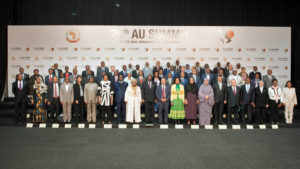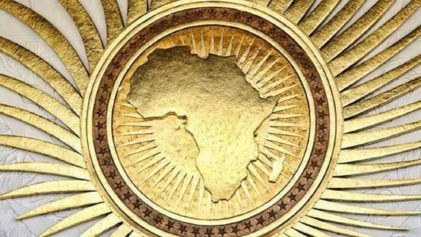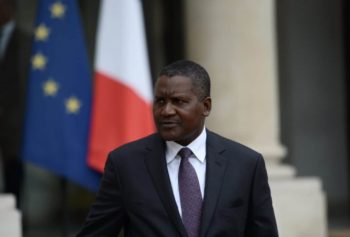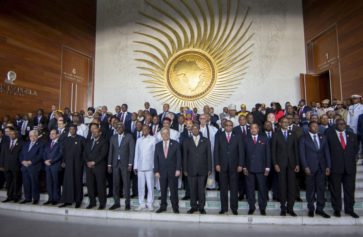Hopes for an African free trade agreement moved closer to reality when negotiations were launched in Johannesburg this week, with 2017 set for the conclusion of a treaty.
But trade experts have cautioned that there is much to do before realising this ambitious target.
The negotiations for a continental free trade agreement were launched at the African Union summit this week, and come off the back of the ratification of the smaller but significant tripartite free trade agreement in Egypt earlier this month.
The tripartite agreement links three major regional blocs – the East African Community (EAC), the Southern African Development Community and the Common Market for Eastern and Southern Africa.
Ongoing negotiations
The tripartite agreement talks began in 2008 and, although the legal agreement has been concluded, further phased negotiations on protocols governing, among other things, competition, cross-border investment and intellectual property rights are still ongoing.
With the signing of the tripartite agreement, however, the dream of a continental agreement is no longer as distant as it once seemed, according to Wolfe Braude, the founder of research consultancy firm Emet Consulting.
“We are now on the road towards continental economic unity,” he said, but warned that the timelines were ambitious.
Once completed, the continental agreement would link 54 countries, with a combined gross domestic product of $3-trillion, and could raise intra-African trade by 52% by 2022, according to the AU Commission.
Braude said the AU wanted to conduct back-to-back negotiations with the tripartite agreement, which could be useful because the experience of one set of talks could be built into the next.
New actors
But a continent-wide deal would involve new actors. “Within this greater bloc, you do have other significant economies,” he said.
These included Nigeria, Morocco and Algeria, and this could be a challenge for countries such as Kenya and South Africa.
“South Africa and Nigeria have never had to play in the same economic playground,” Braude said.
Greater regional integration also faces well-documented problems, including infrastructure barriers, border post delays and corruption.
Research has shown that trade facilitation, such as easing the cost and waiting times of goods at border posts, could have major benefits for the continent.
Scenarios for integration
The Trade Law Centre (Tralac) used the Global Trade Analysis Project database and issued a report that posited several scenarios for regional integration and intra-African trade barrier reductions.
Tralac found that if there was a mere 20% decrease in the costs associated with transit delays, it could amount to a $30.5-billion benefit to the continent.
The steps required to do this could be taken by countries unilaterally, or with improved co-ordination, without the need for drawn-out processes associated with free trade agreement negotiations, according to Tralac.
In the case of Zimbabwe, for example, the research estimated that it would gain almost $1-billion from a reduction in transit times, and “much, but not all, of these transit costs are under Zimbabwe’s own control”.
These barriers have ensured that intra-African trade is far below what it could be.
Read More at www.mg.co.za



